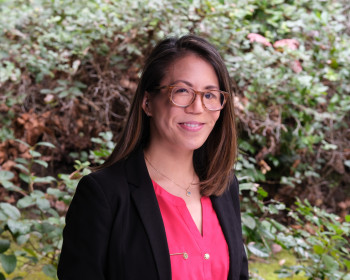The SBLC Renews its Commitment to Equity and Inclusion
The mission of the Small Business Legal Clinic (SBLC) is to provide low-cost transactional legal support for small business owners with a focus on traditionally underserved populations. Women, people of color and recent immigrants own more than eighty percent of the businesses that we serve. These communities have been underserved by many institutions, including the legal system. In fact, the legal system has at times worked against people of color, immigrants and women. As a member of the legal community, it is our responsibility to help our clients access the legal system to empower themselves and their communities. Engaging personally in advancing equity and examining our assumptions and biases is a necessary step in the drive for real change.
To further these efforts, SBLC staff has received training from both the Luna Jiménez Institute for Social Transformation and the Center for Equity and Inclusion over the past year. The lessons learned during these workshops apply to everyday life, while also compelling us to look at the history of racial injustice and the role each individual plays in re-shaping the way we address race as a society. Workshop sessions on our nation’s history of racial segregation, internalized oppression and how that history shaped current institutions remind us of our our role both as an institution and a member of the larger legal system. These trainings give us tools for how to engage in healthy dialogue around race-relations and other areas of historical oppression and provide a welcoming, engaging venue to address challenging questions and discover how we can build a more equitable society.
Conversations surrounding race and oppression in America are often polarizing, but these difficulties must not prevent us from having the necessary dialogue. It is our duty to advocate for our clients and we recognize that running a business and working with attorneys pushes clients to conform with the standards that fall in line with the dominant culture, which may or may not be the chosen paradigm for our clients. Therefore, the SBLC is critically engaging with internalized structures to make our services more accessible and developing a training for all pro bono volunteer attorneys and legal interns to help to provide additional skills. The training will be tested over the summer and rolled out to a broader audience in the fall. We hope that many in the transactional legal community will participate.
More Small Business Legal Clinic Stories
email sblc@lclark.edu
voice 503-768-6940
fax 503-768-6540
Executive Director Juliana Minn

